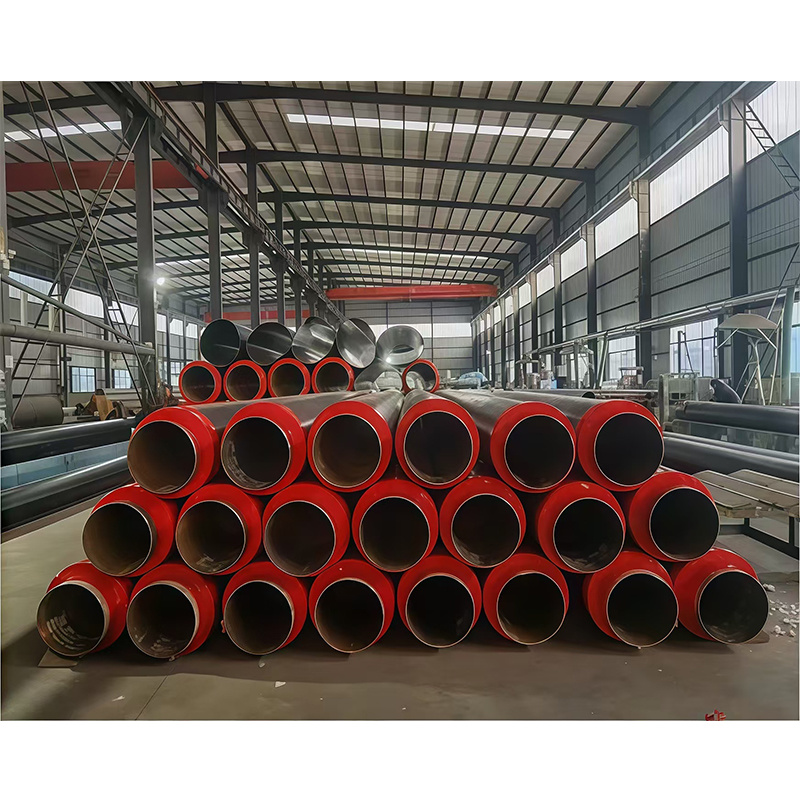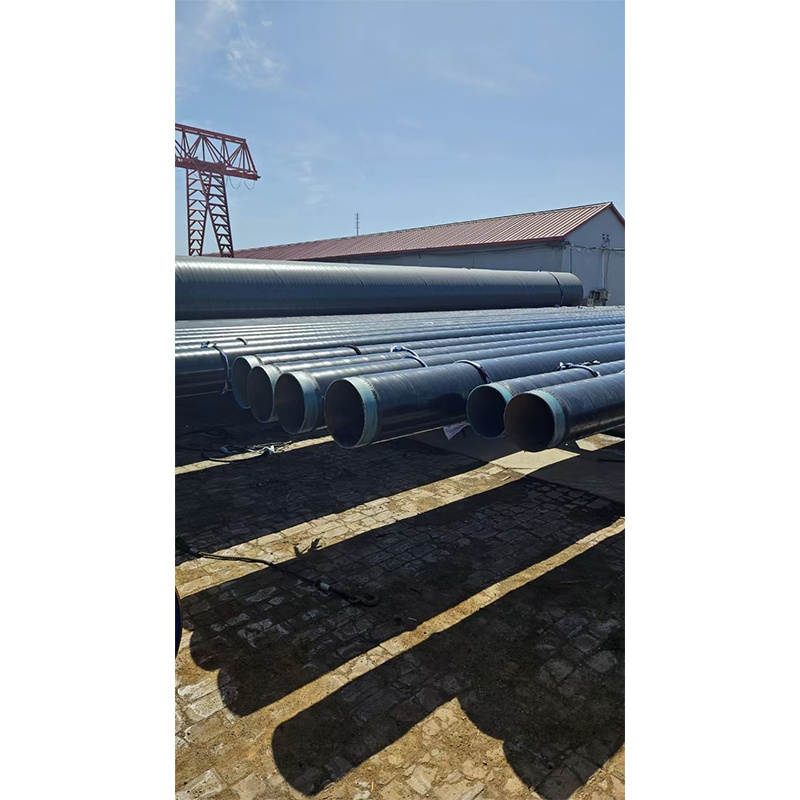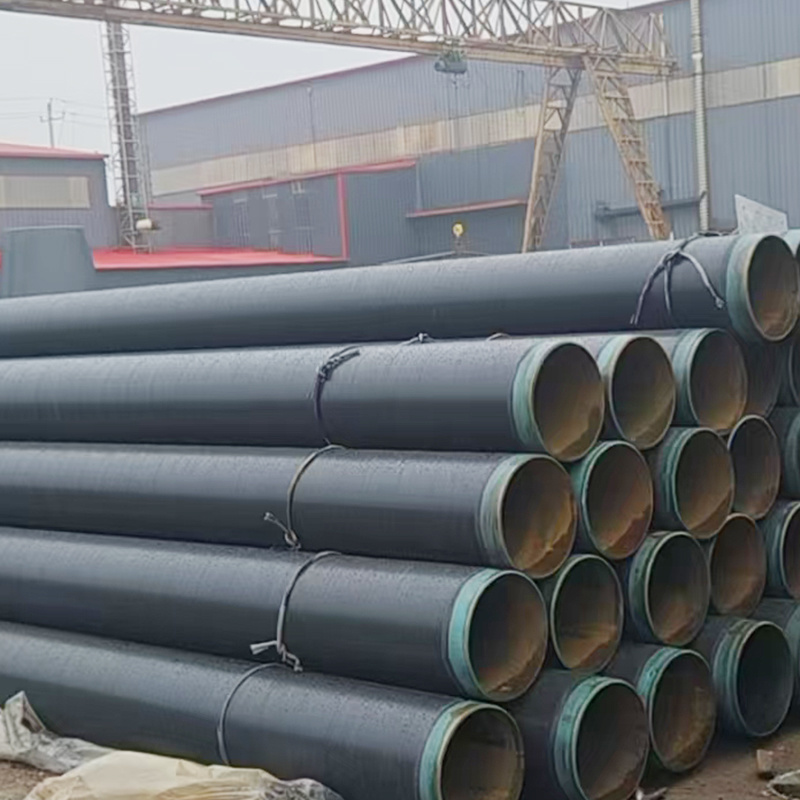Customizing Insulated Pipes for the Oil and Gas Sector: A Comprehensive Guide
May 18,2025
When it comes to the oil and gas industry, the importance of choosing the right materials for pipelines cannot be overstated. Customized insulated pipes play a crucial role in ensuring the efficient transport of fluids while maintaining the integrity of the materials being transported. Insulated pipes are designed to mitigate heat loss or gain, which is especially important in extreme environments

When it comes to the oil and gas industry, the importance of choosing the right materials for pipelines cannot be overstated. Customized insulated pipes play a crucial role in ensuring the efficient transport of fluids while maintaining the integrity of the materials being transported. Insulated pipes are designed to mitigate heat loss or gain, which is especially important in extreme environments typically encountered in the oil and gas sector.
One of the primary benefits of customizing insulated pipes is the ability to tailor them to meet specific operational requirements. For instance, the thermal insulation can be adjusted based on the temperature ranges of the substances being transported, whether they are hot crude oil or cold natural gas. The insulation material used can significantly impact the thermal performance of the pipes, thus enhancing energy efficiency and operational effectiveness.
Additionally, in an industry where the risk of corrosion is high, customized insulated pipes can also include anti-corrosion coatings that extend the lifespan of the pipes. The selection of steel grades and protective linings can be adapted to withstand harsh environmental factors, such as exposure to chemicals and moisture, ensuring that the pipes remain durable over time.
Moreover, customization allows for the integration of advanced technologies. For instance, pipes can be fitted with sensors that monitor temperature, pressure, and flow rates. These sensors provide real-time data that can be invaluable for predictive maintenance, helping to identify potential issues before they escalate into costly failures.
When considering the customization of insulated pipes, it's essential to collaborate with experienced manufacturers who understand the unique challenges and requirements of the oil and gas industry. They can provide expert advice on material selection, design specifications, and installation practices, ensuring that the final product meets all relevant safety and regulatory standards.
In summary, customizing insulated pipes for the oil and gas sector offers significant benefits, including enhanced thermal management, increased durability, and the ability to integrate advanced technology. By understanding the critical factors involved in this customization process, industry professionals can make informed decisions that support operational efficiency and safety in their projects.
One of the primary benefits of customizing insulated pipes is the ability to tailor them to meet specific operational requirements. For instance, the thermal insulation can be adjusted based on the temperature ranges of the substances being transported, whether they are hot crude oil or cold natural gas. The insulation material used can significantly impact the thermal performance of the pipes, thus enhancing energy efficiency and operational effectiveness.
Additionally, in an industry where the risk of corrosion is high, customized insulated pipes can also include anti-corrosion coatings that extend the lifespan of the pipes. The selection of steel grades and protective linings can be adapted to withstand harsh environmental factors, such as exposure to chemicals and moisture, ensuring that the pipes remain durable over time.
Moreover, customization allows for the integration of advanced technologies. For instance, pipes can be fitted with sensors that monitor temperature, pressure, and flow rates. These sensors provide real-time data that can be invaluable for predictive maintenance, helping to identify potential issues before they escalate into costly failures.
When considering the customization of insulated pipes, it's essential to collaborate with experienced manufacturers who understand the unique challenges and requirements of the oil and gas industry. They can provide expert advice on material selection, design specifications, and installation practices, ensuring that the final product meets all relevant safety and regulatory standards.
In summary, customizing insulated pipes for the oil and gas sector offers significant benefits, including enhanced thermal management, increased durability, and the ability to integrate advanced technology. By understanding the critical factors involved in this customization process, industry professionals can make informed decisions that support operational efficiency and safety in their projects.
TAG:
Related Posts
Exploring the Benefits of 3PE Pipeline Solutions in Oil and Gas
Exploring the Benefits of 3PE Pipeline Solutions in Oil and Gas
Table of Contents
1. Introduction to 3PE Pipeline Solutions
2. Understanding the Composition of 3PE Coating
3. The Importance of Corrosion Resistance in Oil and Gas
4. Cost-Effectiveness of 3PE Pipelines
5. Enhanced Durability and Longevity
6. Environmental Benefits of 3PE Pipeline Solutions
7. Installation and Mainten









